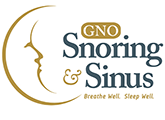Adequate quality sleep is essential for a healthy and productive life. Unfortunately, many of us struggle to get the rest we need due to poor sleep hygiene. Poor sleep hygiene can result from numerous factors, but the good news is that you can take a few simple steps to improve it. In this blog, discover seven tips to increase your sleep hygiene so you can get the restful sleep you need.
1. Consistent Sleep Schedule
A consistent sleep schedule is crucial for good sleep behavior because it reinforces your body’s sleep cycle (your internal clock). This schedule makes it simpler to sleep and wake up at the same times every day and also helps to prevent afternoon tiredness.
Furthermore, the bedtime you choose should allow you to receive between seven and eight hours of sleep per night since this is the suggested amount of rest a healthy adult needs.
2. Comfortable Environment
A quiet, dark, and cold atmosphere can make it easier to fall and remain asleep. A comfortable mattress and pillows and a lack of light and noise can all contribute to a more pleasant sleep experience. Furthermore, limiting your bedroom activities to sleep exclusively can strengthen the psychological association between your bedroom and sleep.
3. Minimized Substance Intake
Avoid sleep-interfering foods and substances because they disturb your body’s regular sleep cycles. Coffee, liquor, nicotine, and other substances can all impair your ability to fall and remain asleep.
Caffeine can linger in your body for hours and make sleep more difficult. Alcohol can assist you to fall asleep temporarily, but it can also cause more wakefulness and poor sleep quality during the night. Nicotine has comparable effects, so avoid it starting a few hours before bed.
4. Logical Sleep Approach
Lying in bed when you do not feel exhausted can cause aggravation and keep you up even longer. You can assist your body to relax and fall asleep faster if you get out of bed and engage in a calming activity until you are tired.
5. Nap Limitations
A nap that lasts too long during the day can reduce your sleep drive, lowering the quality of your sleep at night. Also, daytime naps might disrupt your circadian cycle, which can make it difficult to fall asleep later and cause you to wake up more frequently during the night.
To improve the quality of your sleep, limit your nap period to no more than half an hour and avoid naps much later in the day, like in the evening.
6. Regular Exercise
Regular exercise can help minimize insomnia and enhance sleep quality. Exercise can assist you to fall asleep quicker and sleep better if you exercise several hours before night. Exercise causes the body to generate cortisol, a stress hormone that activates the brain’s alerting mechanism and can make you feel more relaxed and sleepier.
Regular exercise can also improve your exposure to natural light, which can aid in the regulation of your sleep cycle. Furthermore, research has shown that workouts are more helpful than sleeping drugs in insomnia management.
7. Pre-Sleep Routine
A pre-sleep routine can help you transition from being awake and busy to calm and ready to sleep. Your body and mind will gradually begin to relax and let go of the day’s tension and worries if you engage in relaxing activities such as warm baths or books. Thus, you will have a simpler time to fall asleep fast and stay asleep for a longer period. A pre-sleep routine also establishes a constant nighttime habit that your body can perceive as a cue to sleep.
While these tips can help establish good sleeping behavior, some issues like sinuses, sleep apnea, and snoring can ruin your sleep or decrease its quality. Visit an ear, nose, and throat (ENT) specialist to diagnose and resolve any medical issues that can affect your sleep hygiene. Contact us at GNO Snoring & Sinus to book an appointment today.

